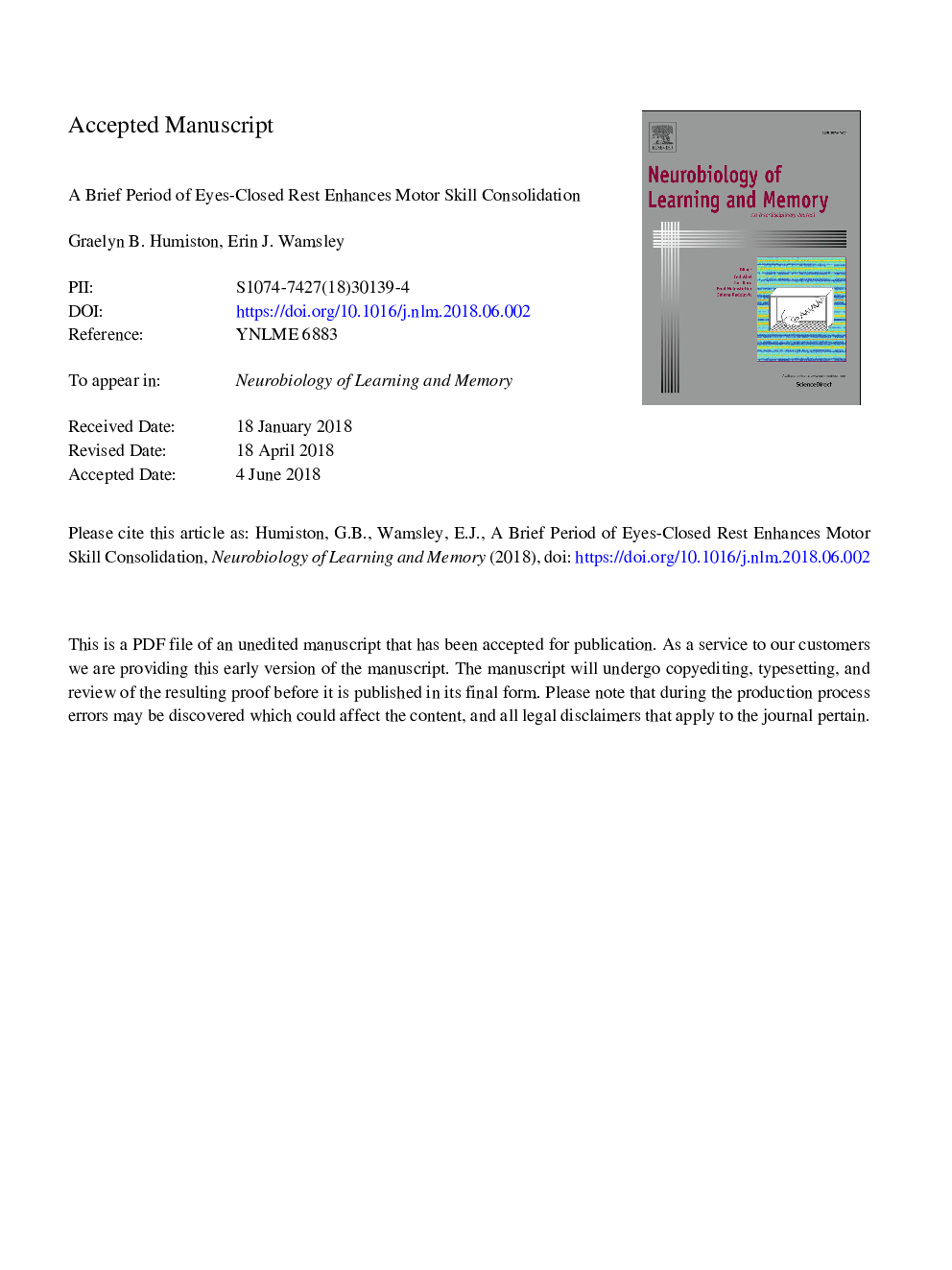| Article ID | Journal | Published Year | Pages | File Type |
|---|---|---|---|---|
| 7298640 | Neurobiology of Learning and Memory | 2018 | 27 Pages |
Abstract
Post-training sleep benefits both declarative and procedural memory consolidation. However, recent research suggests that eyes-closed waking rest may provide a similar benefit. Brokaw et al. (2016), for example, recently demonstrated that verbal declarative memory improved more following a 15â¯min period of waking rest, in comparison to 15â¯min of active wake. Here, we used the same procedures to test whether procedural memory similarly benefits from waking rest. Participants were trained on the Motor Sequence Task (MST), followed by a 15â¯min retention interval during which they either rested with their eyes closed or completed a distractor task. Rest significantly enhanced MST performance, mirroring the effect observed in Brokaw et al. (2016) and demonstrating that waking rest benefits the early stages of procedural memory. An additional group of participants tested 4â¯h later displayed no effect of rest. Overall, these results suggest that the early MST performance “boost” described in prior studies may depend on post-learning state.
Related Topics
Life Sciences
Neuroscience
Behavioral Neuroscience
Authors
Graelyn B. Humiston, Erin J. Wamsley,
